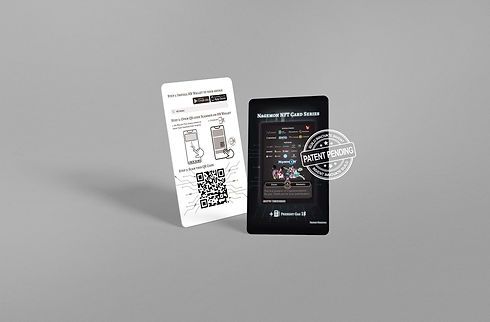NFT in e-commerce – how to use tokens in an online store?
The abbreviation NFT, although corresponds to a concept not understood by many, so more and more organizations decide to implement them in their investment portfolio. What role tokens can play in online stores?
You may be interested in
Non-exchangeable tokens, i.e. recording digital works using cryptographic blockchain technology can also be used in an online store. This is being recognized by more and more entities, and the benefits of using tokenization are present in more and more articles. One of those is the one created by Marketing at Coffee, which has several advantages.
Tokenization in e-commerce
The main problem of digital works is that they are easily reproduced and cannot be distinguished from the original. Hence the marginal approach to digital art, the tokenization of which could provide a solution. The value of a digital file can be determined by the number of previous owners and authenticity. The use of blockchain gives the possibility to verify the authenticity of a given work and allows the creators to directly participate in the transaction without the need to involve institutions or intermediaries (who are usually paid huge commissions themselves). In addition, the owner has control over the number and visibility of the works, can build recognition and gain value faster than in a system of traditional vernissages or premieres, and can track the revolutions that the work goes through.
NFT platforms for e-commerce
On the market we already have platforms that allow you to implement a token system in their own e-commerc.
NFTify it is a tool that allows companies to create a store without the need to involve programmers who code it. In addition to the blockchain, the service also uses artificial intelligence responsible for detecting non-exchangeable tokens that are already in someone’s possession.
Shopify BETA, i.e. the test version of one of the biggest and most popular platforms supporting the implementation of online stores. – The beta program is open to brands, artists, and creators with an established social media presence. To participate, you must be a US-based merchant on Shopify Plus*. Sound like your brand? Then, let’s do this – reads the product page.
Splyt is a service where you can sell real items as tokens. Buyers can sell the physical object and collect royalties for every transaction they make with it. Affiliates, in turn, can collect payments from the sale of these items without any time interruption. All thanks to the use of Ethereum, which stores all information and funds, and is able to instantly transfer them to others on the network. This system does not require users to trust it. This means that it is not so much untrustworthy, but rather that there is no need for such. The use of cryptography in storing data on the blockchain makes it possible not to trust external entities and institutions, which is characteristic of e.g. for banks or investment or hedge funds..
Pandora, like Splyt, allows physical items to be sold as NFT. Tokens can be bought, sold, borrowed, split into parts and traded here. Tokens can also be stored to generate bonuses.
Where NFT is currently used?
Tokens are already being used in the arts, but also in music. It turns out that the rise in popularity of streaming means they’re forced to share their earnings with the platforms that provide the service, undercutting the profits of artists, especially lesser-known ones. NFT allows you to sell your creation in a D2C model, as a token divided into parts, which has already benefited.in. Eminem. In sports the visible players are KB24 and NBA Top Shot.
Tokens make it possible to exchange the most interesting parts of matches on NFT. In the fashion industry, tokens are proof of the originality of an item based on a QR scan of the label. Blockchain eliminates the possibility of fashion counterfeiting, and some fashion houses are creating fully digital collections that are sold in the virtual space, for example. in games. Moving on to gaming, here too we see a wide scope for application.
Collectible items can be tokenized, e.g. maps, rare equipment, character skins or original maps, which are sometimes worth tens of thousands of dollars. It turns out that the introduction of tokens will allow the transfer of items between digital spaces and in the event of collapse of servers or closure of a title it does not mean the loss of the item, which allows you to retain a valuable asset.
Blockchain technology and NFT make it extremely difficult for fraud and forgery to occur when transaction data and tokens are saved. In the future, non-exchangeable tokens may replace SKUs. Moreover, they allow for better tracking of data in e-commerce. In fact, users can see all the changes stored in the blockchain throughout the life of the product.
In conclusion, the tokenization of e-commerce is, according to specialists, a step towards the elimination of intermediaries, fair distribution of profits, or support of the process based on D2C, i.e. the relationship of distributor to customer. The implementation of a system based on tokens also allows for cost reduction and operations that today we associate mainly with banks. Making smart contracts through Ethereum for NFT transactions will allow instant initiation and approval of financial transactions, which are instantly verifiable, by any participant in the network where the transaction was made. This can contribute to lifting restrictions on trading and getting rid of fraud.


